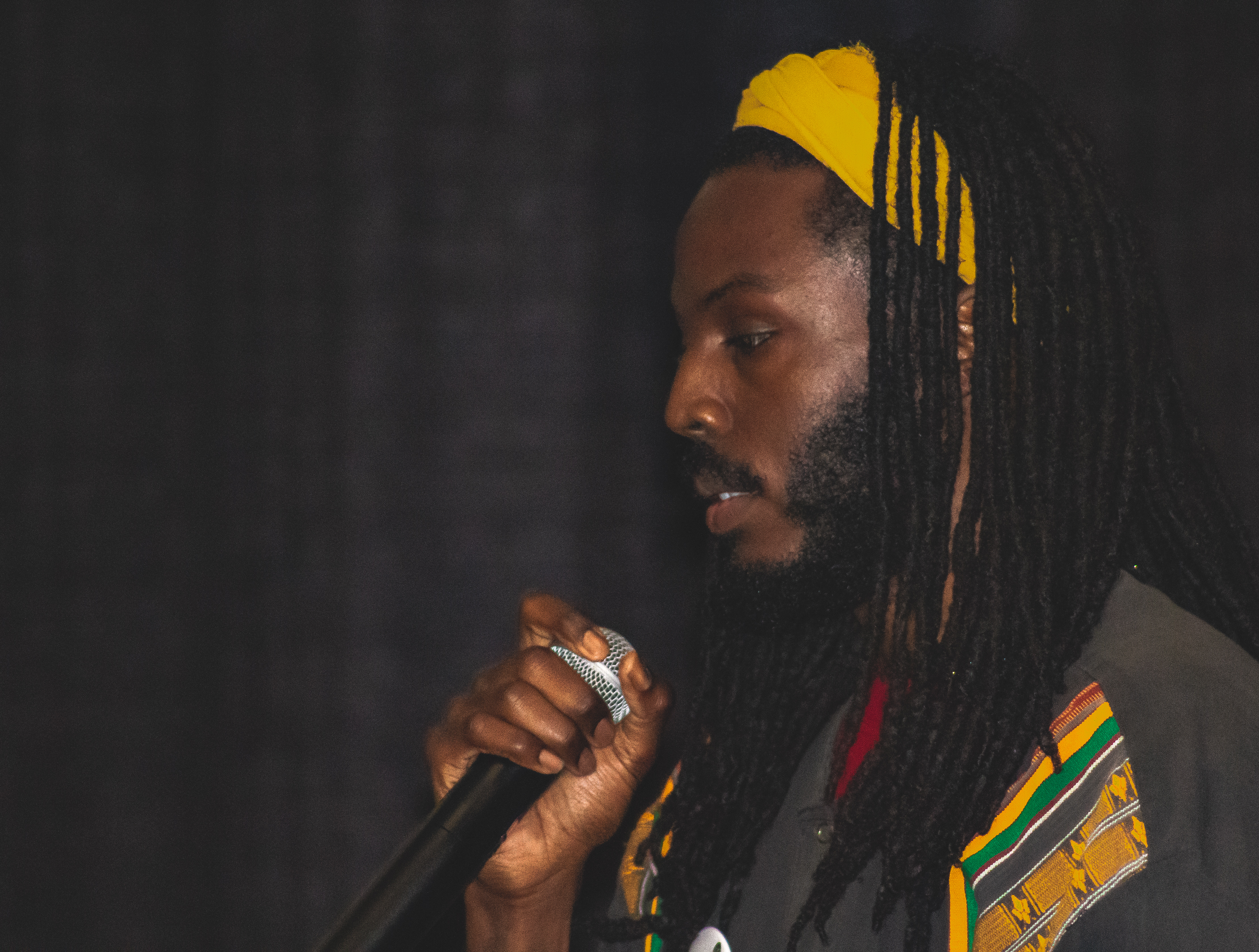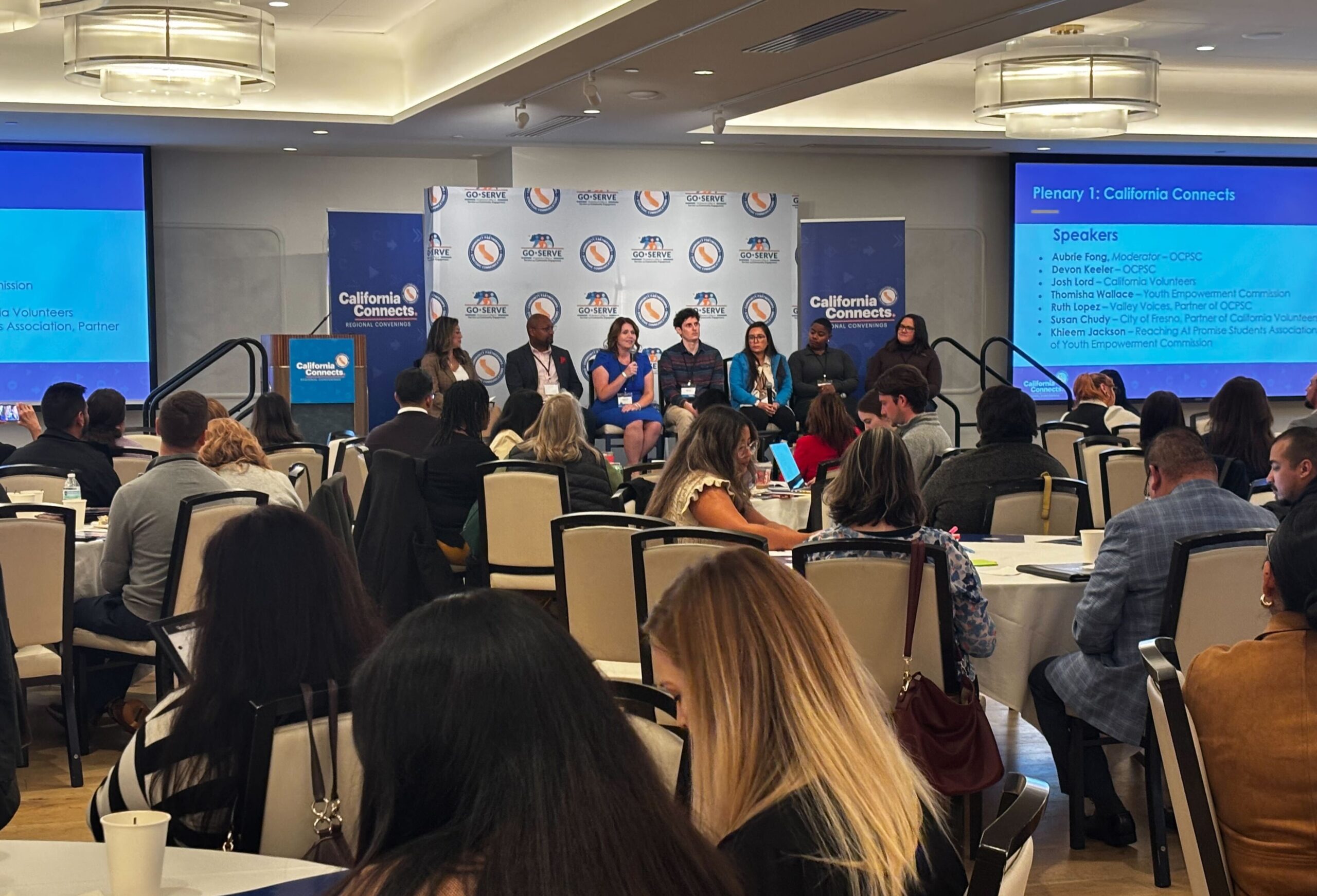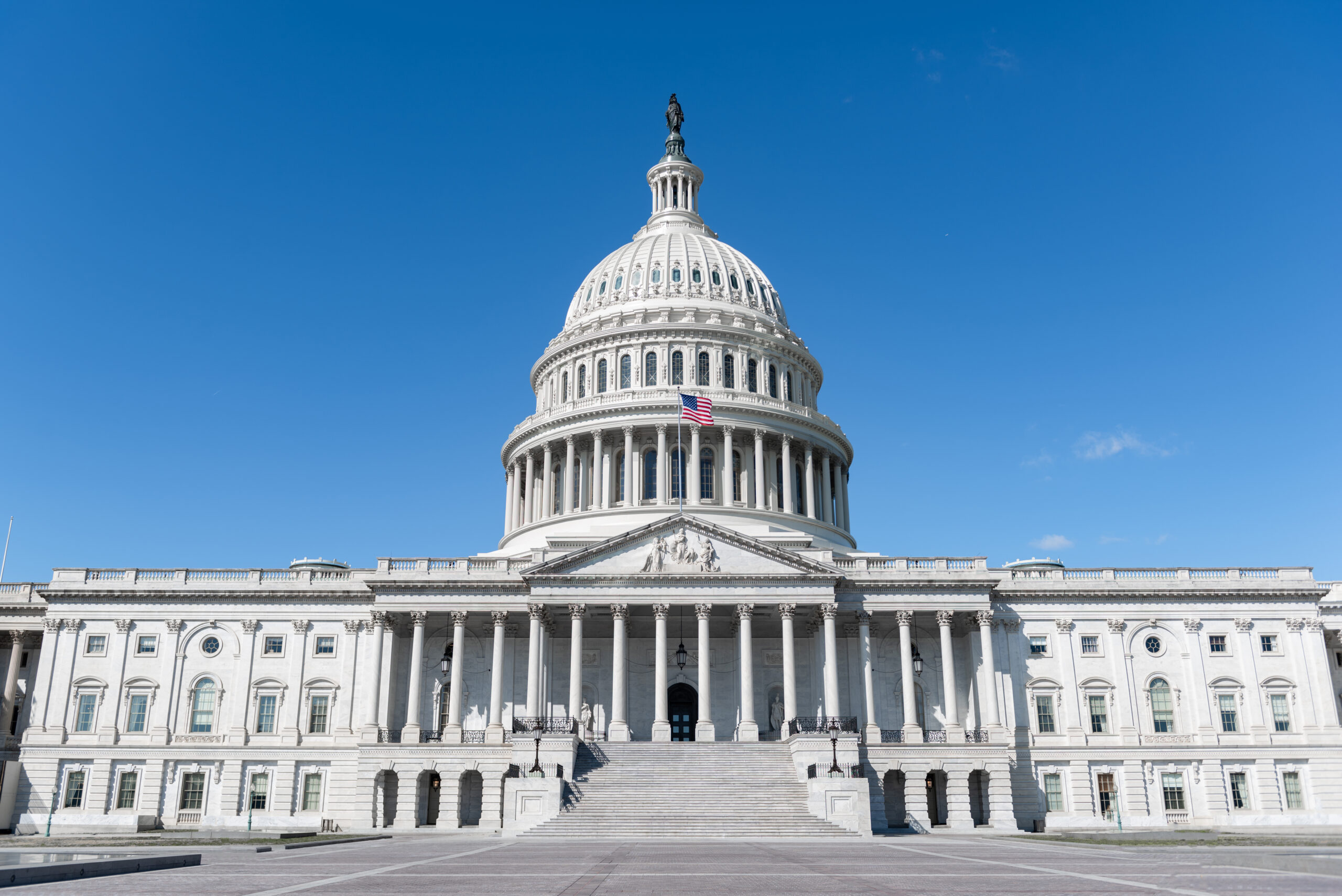![]()
Editor’s Note: September 6, 2018, The California Endowment hosted a two day #Fight4All Convening in Fresno, California. This convening was meant to reaffirm their Fight For All initiative, which was created in December 2016. Robert K. Ross, M.D., President and CEO of The California Endowment said, “The Fight for All fund was created to stand alongside those whose health and lives are threatened by attacks on their coverage, their immigration status, or simply on who they are as human beings. So our support for lifting up their voices will not skip a beat today, but will continue forward.” The kNOw was lucky enough to attend #Fight4All and reporter Zyanna Maynard was able to sit down keynote speakers and activists who attended the convening. Below is the interview she conducted with Donté Clark, with support from Program Associate and Reporter Johnsen Del Rosario.

The spoken word artist and community activist known as Donté Clark is based in Richmond, California and has been sharing the power of his words with the community.
ZM: What does it mean to be a young African-American male in the activist world?
DC: Man. It means to put your life on the line. You are a living sacrifice for your people. Period. Everything that you think, everything that you speak and everything that you invest your time and body in should be a sacrifice for the betterment of your people. Because we are, I feel like, the most attacked. We are the scapegoat. We are the ones that make the bread and butter for those who profit off of oppression. You know what I mean? We are a great threat when we stick together. To fight against that, your life is a living sacrifice. Everything you think, speak and do should be for the benefit of your people.
ZM: For youth who want to follow in your footsteps, what would you want to tell them?
DC: In my footsteps? You gotta be passionate. You gotta know what you’re standing on and why you’re doing what you’re doing. Always know your why. I didn’t get involved in anything if I didn’t know why I was there. Like even coming to this conference. Sometimes my insecurities would be like, “Why am I here?” I feel like some of the conversations that are happening go over my head. I don’t know about every single protest, organization, laws that are being passed. I don’t know about most of the stuff that’s being discussed here. But I asked myself, “Why are you going though? What are you going to bring to this conversation?” And because I know why I do what I do, I can exist in any space that I’m in. Because I feel like whatever is happening, if it doesn’t involve me or my people, then I’m here for that reason. You know what I mean? Know why you’re doing it. And once again, going back to the beginning, everything that you do is a living sacrifice. Everything you think, everything you speak and everything you do, you gotta do that for the benefit of all.
JDR: So, what is your “why” for today? Why are you here?
DC: To be a face. One of the things for me coming here is 1) it’s an experience. I never came to Fresno in this capacity. 2) me seeing that I’m one of the youngest here, I’m probably one of the few black men here, to talk about my unique experience in the Bay Area. Richmond, California. North Richmond. You know what I mean? Talking about poverty, oppression, the violence that goes on between my community. So just like, even though I know a lot of people may know, it’s just for me to uplift that voice in this type of space because I don’t know how my words may land on somebody here who may need to hear that. Or just to see somebody live and direct. That’s one of my “whys.” And another one is to just connect with as many people as possible. For me to just grow, to just get more information about what’s going on with other folks and how can that enrich what I do.
ZM: I know you do poetry. How long have you been doing poetry and when you first started, were you including your activism work into your poetry?
DC: I’ve been doing poetry for – I wrote my first poem when I was 17 years old, so I’ve been doing it for 11 years. I started rapping when I was 11 years olds, so that was kind of like my gateway into writing poetry more intentionally. I never thought about being an activist. Didn’t even know what that was. I just knew – when I thought of activism, I thought of protesting. That’s what I thought activism was until somebody had told me that me telling my unique story of where I come from in a way that I tell it is a form of activism. So years into writing my poetry. I realized that my story was political. Because I thought I don’t know a lot of these politics, all I know is the streets. I know people getting shot. I know drugs. I know this, this and that. How do you think drugs came into this country? That was a political move. How do you think guns are made and are accessible to the poor? That’s a political move. How do you think schools are failing, how do you think poverty – all of that is political. So you talking about Section 8, you talking about your brother going to jail, you talking about the fear of being killed – that’s a political statement. So you are an activist. And the fact that I’m reshaping the narrative about where I come from and who I am, that’s a form of being an activist… But that’s what I mean about being passionate. Because I was passionate about my experience and what I’m talking about from a lived experience, everything that I thought, spoke and did was in line with that. Your movement is your activism. Not what you think, not what you say. It’s what you do with that. How do you apply your information. That’s activism.
ZM: When you do your poetry and you’re speaking, what does your inner dialogue sound like?
DC: Inner dialogue is to leave it all out there. It’s like don’t hold back. Don’t think about what to say, feel it. As long as you’re feeling everything that’s coming out of you, they’re going to feel it. So my inner dialogue – usually I’m aware of what’s going on around me, but mostly, be present. Just be present. Be true to right now, how you’re feeling right now, where you’re at right now. Be present and give all of your presence to this moment.
ZM: What do you want your future to look like? What do you want the future to look like?
DC: I want everybody to think, speak and act in love. Nothing else. Not for selfish reasons, not for money, not for material possessions. The thoughts that I have, I want it to be a vibration that I could reflect you and you could reflect me. I could speak and I could help you and you could help me. Everything that I do is for the betterment of someone else and everything that you do is for the betterment of somebody else. Once we align those three things, we could change everything around us no matter what position in life you have. Whether you’re the janitor or whether you’re the person that’s running the building, if everybody thinks, speaks and acts in love, in every organization, we’ll be one. It wouldn’t be a variety. It wouldn’t be 15 different organizations trying to accomplish the same goal. We’d all be doing the same thing. Thinking, speaking and acting in love. That’d be the world.
ZM: What do you want the future to look like for your kids? What do you want for them in their life?
DC: I want them to know freedom. No fear. Freedom is no fear. And to have no fear, that means that you embrace every situation. When you embrace every situation, you are acting in love. So, it’s like I have no fear of you because I don’t know you. I’m gonna get to know you. I’m excited to get to know you. I have no fear of the unknown because I know it’s only beautiful things awaiting me on my journey. I want my kids to know freedom. To have no fear.


